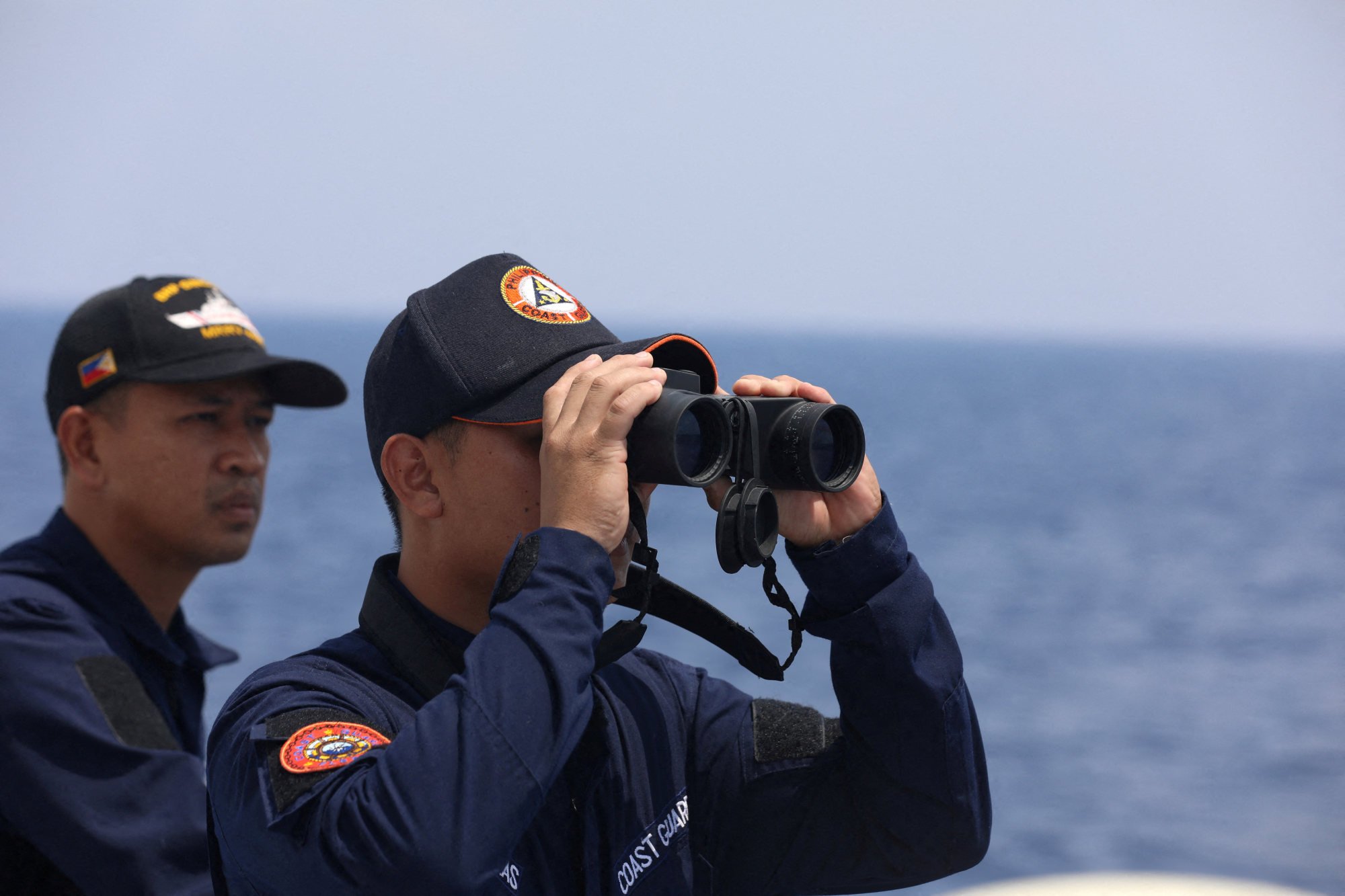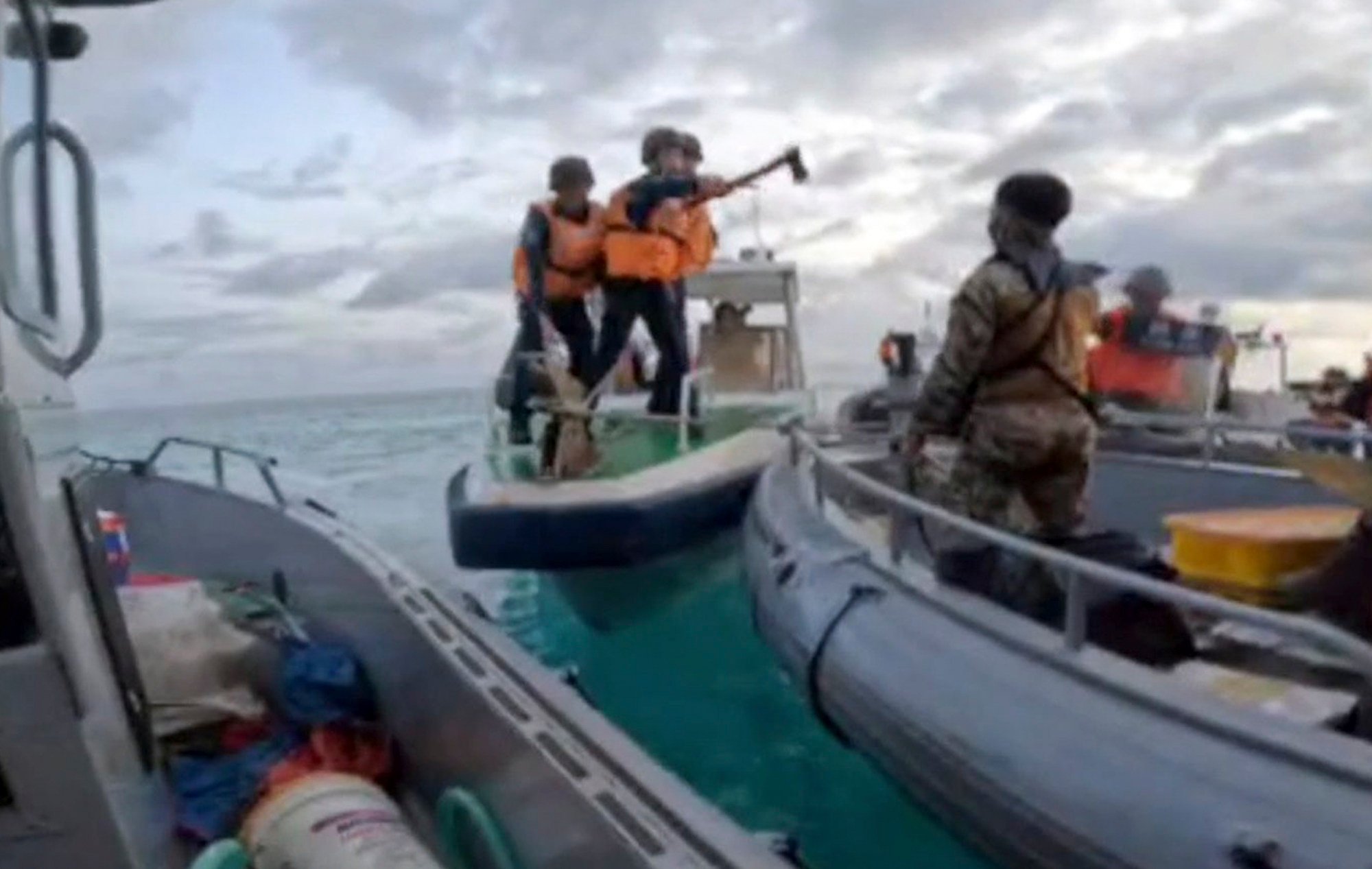Philippines risks Beijing’s ire as it weighs using allies for South China Sea resupply runs
“We’ll wait for the National Maritime Council to give us the appropriate guidance in terms of timing and other issues,” Defence Secretary Gilberto Teodoro told reporters on July 16. He said the decision would be made by the council and the foreign affairs department.
A plan to combine a resupply mission with a joint exercise “could prove dangerous, but so is current Chinese behaviour. China has been steadily escalating [tension], not the Philippines”, said Gregory Poling, director of the Washington-based Asia Maritime Transparency Initiative.
The Philippine Navy has conducted joint exercises with other countries previously, but any involvement of foreign armed forces in an exercise held in conjunction with Manila’s resupply mission would constitute a major development, analysts say.
In the event of the Philippines asking for US help with resupply missions, Washington was likely to answer the call, Poling told This Week in Asia.

On Friday, US national security adviser Jake Sullivan said the US “would do what is necessary” to help the Philippines in its resupply efforts, with Washington’s preference being to maintain the regional status quo.
“We have tried to consult very closely with the Philippines because these are decisions they should lead on, how to most effectively reprovision this ship so that the sailors on board have the food and water and other provisions they need to continue to fulfil their mission,” Sullivan said, speaking at the Aspen Security Forum in Colorado.
If the Philippines were to find it difficult or dangerous to resume its resupply missions on its own, leveraging the support of its allies to deter Chinese aggression would be a feasible option, Poling said.
Chester Cabalza, founder and president of the International Development and Security Cooperation think tank in Manila, told This Week in Asia that the Philippines’s idea for wider maritime participation was “astute”.
Such partnerships would reinforce “Manila’s credible leadership and moral ascendancy on maritime rules-based norms by not stooping to China’s mischievous grey zone tactics”, Cabalza said.
“Manila’s ahead of the curve, drawing a flock of maritime powers to sail with its coastguard and navy. It would mean the Philippines has growing followers of its advocacy to assert its sovereignty.”

About 71 per cent of Filipinos want such an alliance to defend the country’s territorial and economic rights in the West Philippine Sea – Manila’s name for the part of the South China Sea that includes its exclusive economic zone – according to a survey by Social Weather Stations released on Friday.
Rear Admiral Roy Vincent Trinidad, a spokesman for the Philippine Navy, acknowledged the importance of public support, saying it has contributed to boosting the “sky high” morale of the marine personnel involved in the resupply missions and ensuring they had sufficient supplies.
Philippine forces will continue with their resupply missions and maritime air surveillance flights to protect the country’s territorial rights in the West Philippine Sea, Trinidad said in a press conference on Thursday.
“All our actions are governed by the rules of engagement and international law. Again, we have never been escalatory in our actions. The Communist Party of China’s actions in the West Philippine Sea have always been escalatory.”